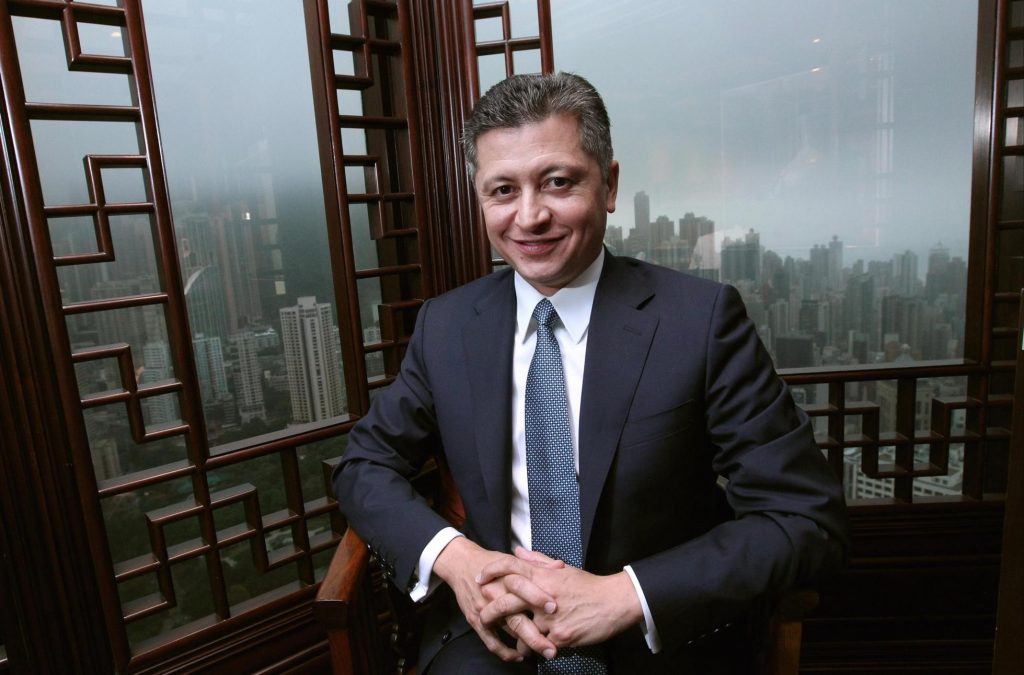Hongkong Land’s Robert Wong will step down from his role as chief executive after seven years at the helm. The property arm of Hong Kong-based conglomerate Jardine Matheson has announced that he will be succeeded by Michael Smith, the regional CEO for Europe and the U.S. at Mapletree Investments, a real estate company owned by Singapore state investor Temasek.
Smith was most recently responsible for growing Mapletree’s portfolio in Europe and America across logistics, data centers, business parks and student housing. His previous experience also includes serving as a partner at Goldman Sachs in Singapore and a managing director at UBS. Smith’s appointment will be effective from April 1, 2024, Hongkong Land said.
Meanwhile, Wong will continue as chief executive until March 31, 2024 and he will stay on as senior advisor to assist with the leadership transition for an unspecified period of time.
“I have every confidence Michael will evolve our business—ensuring we continue to invest, manage and develop prime commercial, retail and mixed-use assets, while at the same time, positioning the group for long-term sustainable growth in China and other key Asian markets,” Ben Keswick, executive chairman of Jardine Matheson, said in a statement.
Keswick also thanked Wong for his over 38 years of service to Hongkong Land, citing the instrumental role he played in building Hongkong Land’s operations in mainland China since the early 1990s. A spokesperson for Hongkong Land said in a written response that the move is “a planned leadership succession process,” with Wong “retiring from his role after a long successful career with Hongkong Land.”
The sudden change in leadership comes at a time when Hongkong Land continues to face headwinds on multiple fronts. In Hong Kong, the commercial leasing market remains depressed as higher borrowing costs weigh on demand, while mainland China’s residential market still has yet to show any signs of a recovery. Hongkong Land said that it expects its underlying profit for 2023 to be “moderately below” last year’s $776 million, the second consecutive year to record a decline in earnings.
Morgan Stanley analysts said in a research note that it remains “unclear” how Smith will navigate the challenging operating conditions in both the Hong Kong commercial and mainland Chinese residential market. They pointed out that Hongkong Land has been lagging Hong Kong’s main Hang Seng Index over the past six years. “The market might wait to see Mr. Smith unveil his strategies before giving credit for this change,” wrote analysts Praveen Choudhary and Jeffrey Mak.
Wong joined Hongkong Land in 1985 and rose through the ranks to become the company’s CEO in 2016. Under his leadership, Hongkong Land doubled down on its investments in mainland China at a time when the country was still in the grips of the pandemic. In early 2020, the company made its largest-ever investment commitment of its 133-year history to transform Shanghai’s West Bund area into a new financial hub at a total cost of $8.4 billion as part of a joint venture.
Wong previously told Forbes Asia that he remained undeterred by Hong Kong’s leasing market downturn and mainland China’s property woes. “While we need to be prudent during difficult times, we should not be overly conservative,” he said in an interview last year. “We should still seek out and explore opportunities. With crisis comes opportunity.”

